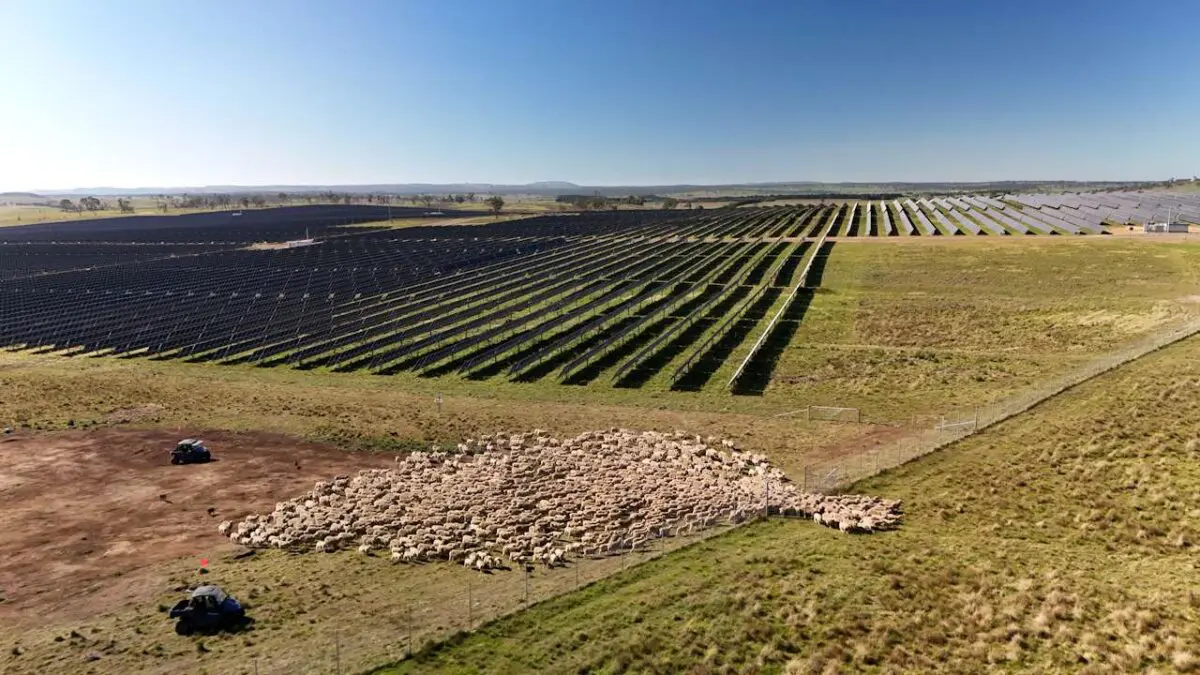The owner of the biggest solar farms in New South Wales has reported a fall in revenue and earnings from the projects in the first half of 2025, despite higher output as the newest facility ramped up production.
The Philippine-based Acen Renewables operates the 400 megawatt (MW) New England solar farm in northern NSW and is also commissioning the 400 MW Stubbo solar project in the central west of the state.
The combined generation output from the two projects rose to 536 gigawatt hours (GWh) in the first two quarters of 2025, a 31 per cent jump from the same period a year earlier as Stubbo worked through its commissioning process. It was near full output at the end of the reporting period.
But revenues were down 2 per cent, and earnings (on an EBITDA basis) were down 10 per cent in the first half due to subdued prices for LGC (large generation certificates). The average price received equates to around $65 a megawatt hour.
Acen Renewables has begun work on the second 320 MW stage of the New England solar farm, which will make it the biggest in the country at a total of 720 MW, along with a 200 MW, 400 MWh battery system at the site that is currently 29 per cent complete (as at June 30).
The company has secured 20-year Long Term Energy Supply Agreements (LTESA) for both the New England and Stubbo solar facilities.
Acen Renewables says the the LTESA grants the generator the option to engage in two-year electricity swap contracts from July 1, 2026, to June 30, 2047, known as “Swaptions.” If exercised, the swap settles based on the difference between the LTESA fixed price and the National Electricity Market (NEM) spot rate for each MWh of energy produced.
Acen has also been successful in the federal government’s Capacity Investment Scheme, landing the biggest contract (in MW) terms in the first tender for its 936 MW Valley of the Winds project in western NSW. That project has received planning approvals but is now facing a contest through the courts.
It also owns the massive Robbins Island wind project in Tasmania, which has been held up by planning delays, local opposition and court challenges.
One of its most vociferous opponents, the Bob Brown Foundation, said this week it expected new federal environment minister Murray Watt to grant EPBC approval to the project soon. This week, Watt extended approval for another controversial activity, salmon farming in Macquarie Harbour on the west coast of Tasmania.
Giles Parkinson is founder and editor-in-chief of Renew Economy, and founder and editor of its EV-focused sister site The Driven. He is the co-host of the weekly Energy Insiders Podcast. Giles has been a journalist for more than 40 years and is a former deputy editor of the Australian Financial Review. You can find him on LinkedIn and on Twitter.

